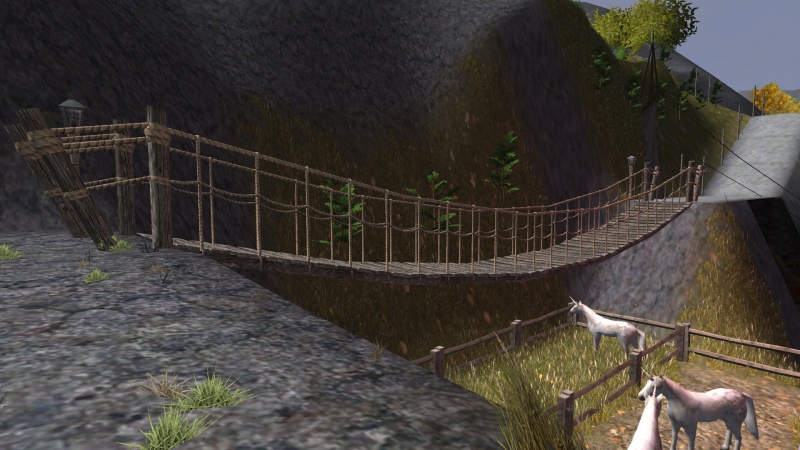Difference between revisions of "Rope bridge"
Jump to navigation
Jump to search
m |
m |
||
| Line 3: | Line 3: | ||
Although rope bridges can be only one tile wide, they function as any other bridge and can be passed over by [[large cart]]s and [[wagon]]s. | Although rope bridges can be only one tile wide, they function as any other bridge and can be passed over by [[large cart]]s and [[wagon]]s. | ||
| − | Unlike other bridges, rope bridges sag down in the middle, sagging less when the planner has more [[body strength]]. This can make them impractical over shallow areas, or between areas with significant difference in height. See [[ | + | Unlike other bridges, rope bridges sag down in the middle, sagging less when the planner has more [[body strength]]. This can make them impractical over shallow areas, or between areas with significant difference in height. See [[bridge]] for the sag percentage chart. |
==Parts of the Bridge== | ==Parts of the Bridge== | ||
Revision as of 19:10, 20 September 2019
Contents
Usage
Although rope bridges can be only one tile wide, they function as any other bridge and can be passed over by large carts and wagons.
Unlike other bridges, rope bridges sag down in the middle, sagging less when the planner has more body strength. This can make them impractical over shallow areas, or between areas with significant difference in height. See bridge for the sag percentage chart.
Parts of the Bridge
- Rope bridge crown-the center parts of a rope bridge.
- Rope bridge abutment-the section of the bridge that connects to the ground.
- Rope bridge double abutment-only used for one tile rope bridges.
